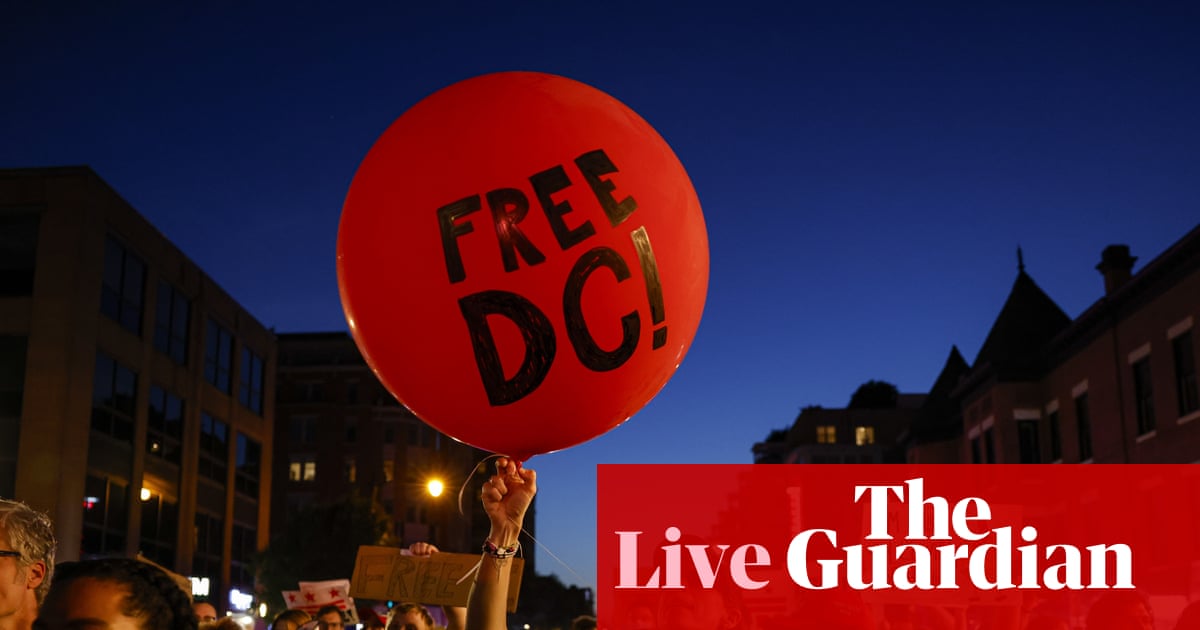The measure of a political party’s failure lies not in how many agnostics and opponents it fails to convert, but in how many loyalists it fails to preserve. The endorsement of new, unnatural voters – Latinos in the US for Donald Trump, or Tories voting for Labour for the first time – might deliver big electoral swings but is ultimately not sticky. And these votes are only meaningful if the bedrock is solid. That bedrock is the people who consistently show up, no matter what, from generation to generation, for a party. And the Democrats are losing them.
In extensive research published last week tracking voter registration, the New York Times identified an alarming pattern. The Democratic party has been “haemorrhaging” voters since way before election day. In the states that track voter registration by political party, Democrats lost to Republicans in all of them in the years between 2020 and 2024. By the time Kamala Harris took over from Joe Biden, the party had already shed more than 2m votes in those states, and Republicans had gained 2.4m. This is part of a “four-year swing” that amounts to 4.5m votes. In a chilling conclusion, the report states that “few measurements reflect the luster of a political party’s brand more clearly than the choice by voters to identify with it”.
The signs get worse the more closely you look. It’s not just a decline in new registered voters, but a hacking away of those natural voters who parties can easily rely on. Some of the sharpest declines were among young voters who came out emphatically for Joe Biden in 2020, then swung towards Trump in 2024. An assumption that voters who are young, Black or Latino would register mostly in the Democrats’ favour was no longer safe.
The most striking thing about these revelations is how long and consistent the turn-off has been: “There is no silver lining or cavalry coming across the hill,” said one voter registration analyst, “this is month after month, year after year.” They show how during the last election, when the Democrats were battling with the damage of a belated handover from Biden to Harris, and a swirl of other challenges, the party was already on the back foot, hostage to a years-long disillusionment. And if you look at some of the reasoning for Democrat abandonment from last year, the same conclusion heaves into view – the Democrats rested on their laurels, and Trump attacked. The vibe contest was between business as usual, and the promise of something different.
The result is a cratering of Democrat support that cannot be filled in overnight, or even over the next three years, especially with the party seemingly in disarray, and with a lo-fi leadership in Chuck Schumer accused of being “unwilling and unable to meet the moment”. It’s not about the unique, mendacious bewitching of voters by Trump, but something broader. Centre-left parties seem trapped by their inability and unwillingness to articulate values in ways that go beyond just saying the other guys are bad for democracy, by identifying a vision of what and who they are for.
They are operating in a world where traditional coalitions around class, labour and identity are dissolving, where high barriers to home ownership, social mobility and job stability have been erected, and the relationship between hard work and prosperity, or even viability, has been severed. Combine that with an online and media ecosystem that trades in attention and feeling, and you have a political climate that requires policy intervention and campaigning edge.
Instead, as summed up by Gabriel Winant after Trump’s victory, Kamala Harris had “stretched her coalition into incoherence” in a “grab bag” of policies “sharing no clear thematic unity or coherence”. This is the result of both a lack of direction, and of a party that now houses both the powerful and those at the losing end of that power, which can only mean a lop-sided capture by the former. Or, as chillingly observed by Anton Jäger: “Bankers and warmongers predominate in Democrat ruling circles, the indebted and the marginalised among its rank-and-file.” This reminds me of Keir Starmer’s drive to cast Labour as “pro-business, pro-worker and pro-wealth creation”. You cannot have coherence when the interests you represent, or claim to represent, are by definition antagonistic.
This brand tension has an analogue in a smaller but no less revealing way in the UK, where students are abandoning Labour. University Labour clubs are disaffiliating from the party, Labour’s youth membership has collapsed, the tail of a longer falling out with Labour leadership over Gaza. But this is a broader confrontation between young voters and a party that has failed to stand for any clear moral principles that appeal to the idealism so necessary to create not only future voters, but activists and campaigners. On Gaza, Labour is anti-starvation, but also anti-protest.
And both the Democrats and Labour are positioning themselves antagonistically to those whose sharper expressions of political vision are hugely popular with those who are abandoning them. Senior Democrats might still not endorse New York City mayoral candidate Zohran Mamdani, who is posting stunning polling leads. Labour disciplines MPs for rebelling against benefit cuts, even as hundreds of thousands of people register their support for a new party.
But as new and future voters are lost, the lion’s share of the windfall goes to those on the right and extreme right who have already mastered the gamification of politics, and the ability to summon fever dreams of threats that must be dealt with and prosperity that is just around the corner. “Elections are won from the centre” goes the old adage, but increasingly the centre itself has changed as the world becomes not a place of wide-tent compromise, but of irreconcilable differences. And I would venture another formulation – elections are won in the past. By the time it becomes apparent that remote and complacent centrist politics is not even managing to convince its own tribes, it will be too late. Some would argue it already is.
-
Nesrine Malik is a Guardian columnist

 German (DE)
German (DE)  English (US)
English (US)  Spanish (ES)
Spanish (ES)  French (FR)
French (FR)  Hindi (IN)
Hindi (IN)  Italian (IT)
Italian (IT)  Russian (RU)
Russian (RU)  7 hours ago
7 hours ago
























Comments